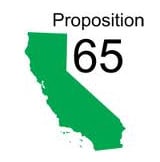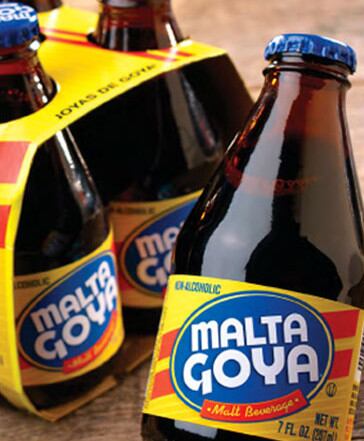The FDA, Health Canada and EFSA all say 4-MEI (4-Methylimidazole) - an impurity generated naturally during the manufacture of caramel colors III and IV and many other foods - does not pose a health risk at levels currently used in foods and beverages.
The FDA is reviewing new data, but says it “has no reason to believe” it needs to revise its position.
However, Consumer Reports claims that there is no ‘safe’ level of 4-MEI, based on the results of a US government-funded 2-year study published in 2007 (click here) showing that 4-MeI at varying exposure levels did not increase cancer incidence in male rats, but did increase lung cancer risk in mice.
Plaintiff: PepsiCo and Goya Foods “deceptively omit that their soft drinks contain dangers levels of 4-MEI that expose consumers to cancer”
In complaints* filed in California by plaintiff Thamar Santisteban Cortina on January 23, PepsiCo and Goya Foods are accused of violating California’s Unfair Competition Law (UCL), False Advertising Law (FAL) and Consumers Legal Remedies Act (CLRA).
Cortina alleges that “Malta Goya [carbonated malt] beverages contain an amount of 4-MeI, a carcinogen, sufficient to expose California consumers to substantial health risks.”
However, the “deceptive omission of the amount and health harms of the 4-MEI in the Malta Goya beverages was likely to deceive reasonable consumers and the public,” alleged Cortina, who seeks to represent a class of all consumers who purchased Malta Goya in California in the past four years.
Cortina’s near-identical complaint vs PepsiCo, filed on behalf of everyone who purchased Pepsi, Diet Pepsi, or Pepsi One in California over the same period, alleges that PepsiCo “has and continues to deceptively omit that these soft drinks contain dangerous levels of 4-MEI that expose consumers to cancer”.
PepsiCo has switched to low-MEI caramel colors across the US
PepsiCo declined to comment on the lawsuit. However, it told FoodNavigator-USA last month that it now uses low-4-MEI caramel colors in products across the US, not just in California, adding: "All of Pepsi’s products are below the threshold set in California and all are in full compliance with the law."
Goya Foods did not respond to requests for comment on the lawsuit.
Toxicologist: 4-MEI federal limit should be set at 3 micrograms/day

According to Consumer Reports, tests of leading soft drinks brands conducted throughout 2013 showed a wide variation in 4-MEI levels, with some (Malta Goya) well in excess of California's Proposition 65 safe harbor levels (set at 29 micrograms 4-MeI/day), and others well below (Coke).
At over 300 micrograms per serving, Malta Goya had the highest levels; Pepsi and Diet Pepsi had 24-31 micrograms/serving; Dr Pepper Snapple Group products had around 10 micrograms per serving; and Coca-Cola, Coke Zero and Diet Coke were in the 3.6-4.3 micrograms range.
Toxicologist Dr Urvashi Rangan, executive director of the Consumer Reports Food Safety and Sustainability Center, told FoodNavigator-USA: “There is no ‘safe’ level of 4-MEI, but if you have set a threshold, it should be well below the Prop 65 level and more like 3 micrograms/day."
Attorney: Could this spark another row over primary jurisdiction?
So what do legal experts make of these lawsuits? And how might Pepsi and Goya Foods respond?
Kristen Polovoy from the litigation department of Montgomery, McCracken, Walker & Rhoads LLP, told FoodNavigator-USA: "Defendants could argue that if any soft drink ingredients should be banned or regulated, the FDA should make that decision on the basis of a full scientific record, not a lay jury... [They] could argue that if soft drinks sold in interstate commerce should be subject to a maximum 4-MEI level, the FDA should set it."
Given that the FDA has recently refused to define 'all natural' in the context of civil litigation over GMOs - rejecting arguments that primary jurisdiction applies in such cases - it could be "quite interesting" to see what happens next, she added.
"If the FDA takes the same approach to 4-MEI, this would create a vacuum of guidance for claims like those in the Pepsi and Goya cases, with private litigants arguing over whether appropriate 4-MEI levels are policy questions that should be answered via legislative regulations or judicial function."
These suits do not hinge on proving regulatory violations - they are about whether reasonable consumers were misled
But why didn't the plaintiff just sue over alleged violations of Proposition 65, which requires firms to add cancer warning labels to products if 4-MEI intakes from their foods/beverages exceed the safe harbor level?
William Dance, LA-based attorney at law firm Tucker Ellis LLP, told FoodNavigator-USA that Cortina "probably chose the consumer class action route in part because other Proposition 65 private actions against Pepsi and Goya have already been noticed, so this may have seemed to her to be a less crowded field.
"Plaintiff and her counsel might have also thought it likely that the State of California might settle the Proposition 65 violations, which have received considerable publicity, during the 60-day window when the Attorney General has the exclusive right to do so.

"The plaintiff complains, essentially, that Pepsi and Goya Foods deceived reasonable consumers by failing to disclose the levels of 4-MEI in some of their products. Neither Proposition 65 nor FDA regulations either require or prohibit this disclosure, so the suits do not hinge on proving regulatory violations of any kind."
Proving Pepsi and Goya deceived reasonable consumers may be harder than proving violations of Prop 65
To prevail, Cortina will have to show that reasonable consumers would deem the products’ 4-MEI content material to their purchasing decisions, he said. "That, in turn, will require plaintiff to establish that reasonable consumers would not have paid as much as they did for the products had the manufacturers disclosed the presence of the 4-MeI and the resulting risk of injury on their labels.
"This ultimately may be more difficult than proving violations of Proposition 65 would be, in part because the FDA has concluded that it has “no reason to believe that there is any immediate or short-term danger presented by 4-MEI at the levels expected in food from the use of caramel coloring.”
*The cases are: Thamar Santisteban Cortina v. PepsiCo Inc (3:14-cv-00168); and Thamar Santisteban Cortina v. Goya Foods Inc (3:14-cv-00169). Both were filed in the US District Court of Southern California on January 23. Cortina is represented by John J. Fitzgerald IV of The Law Office of Jack Fitzgerald PC.
Click here to read more about 4-MEI.
Click here to read the Consumer Reports data in full.
Click here to read the American Beverage Association statement on 4-MEI.
